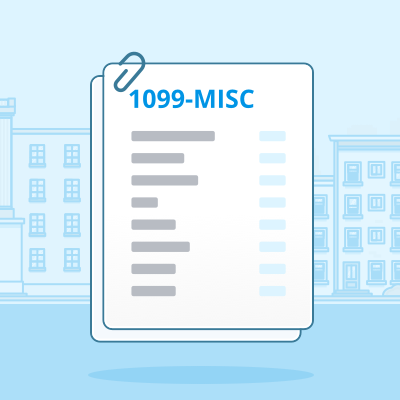The Ultimate Guide to Taxes for Self-Employed Professionals
For a freelancer, independent contractor, self-employed worker, 1099 worker, or small business owner, taxes can be a bit more complicated than they are for traditional employees. Instead of having taxes withheld from your paycheck, you are responsible for calculating and paying your own taxes. One form that you will likely need to be familiar with is the 1099 form, which is used to report income that is not subject to withholding. This self-employed tax guide is here to help provide general tips for filing a 1099 form.
What are 1099 Taxes?
The 1099 form is used to report various types of income that are not subject to withholding, such as freelance or contract work, rental income, and investment income. If you are a freelancer, independent contractor, self-employed worker, or small business owner, you may receive a 1099 form from your clients or customers that reports the income you earned from them during the year. Alternatively, if you paid someone else for services or rent, you may need to file a 1099 form yourself.
If you receive a 1099 form, you are responsible for reporting that income on your tax return and paying taxes on it.
Self-Employed Tax Guide: General Tips for Tax Season as a 1099 Worker:
Keep Good Records: As a self-employed 1099 worker, it's important to keep track of all your income and expenses throughout the year. This will make it easier to prepare your tax return and ensure that you are taking advantage of all the deductions you are entitled to. Consider using accounting software, hiring a bookkeeper, or using a reliable tax-tracking app to help you keep track of your finances.
Plan Ahead: There are pros and cons to being your own boss; one of the cons is the 1099 process. Because you are responsible for paying your own taxes as a 1099 worker, it's important to plan ahead to avoid any surprises come tax season. Estimate your tax liability early in the year and make quarterly estimated tax payments to avoid penalties and interest.
Maximize Deductions: As a self-employed 1099 worker, you are entitled to a number of deductions that can help reduce your tax liability. These may include home office expenses, business travel expenses, and equipment purchases. Most freelance workers, contractors, and small business owners work with a tax professional to ensure that the correct amount of taxes are paid, as well as take advantage of all available deductions.
Separate Personal and Business Finances: It's important to keep your personal and business finances separate to avoid any confusion come tax time. Open a separate bank account and credit card for your business expenses, and make sure to keep all receipts and records for these expenses.
Stay Organized as a 1099 worker: Finally, it's important to stay organized throughout the year to make tax season as stress-free as possible. Set aside time each month to reconcile your accounts, track your expenses, and prepare for tax season. Consider using a tax organizer, working with a tax professional, or using a user-friendly tax tracking app to help you stay on track.
Completing 1099 tax forms can be a bit more complicated than traditional employment taxes, but with some careful planning and organization, you can ensure that you are prepared for tax season and minimize your tax liability. Keep good records, plan ahead, maximize deductions, separate personal and business finances, and stay organized to make tax season as stress-free as possible. Contact Stride today to learn more and check out our ultimate self-employed tax guide for 1099 workers!
Our Ultimate Tax Deduction Guide
Check out Stride's Tax Deduction Guide, which helps you discover more write-offs based on what you do for work. Whether it’s mileage you can deduct or getting your real estate license renewed, we’re here to make sure you don’t miss it. Read more.
(Don't forget, the FREE Stride App can help you save thousands of dollars on your tax bill and hours of tax prep time by automatically tracking your miles and expenses, surfacing money-saving deductions, and getting your forms IRS-ready. Get it today!)
Popular Topics
How to Deduct Medical Expenses
Learn more about the 3 ways to deduct health and medical expenses. Read more.
Top 3 Missed Tax Deductions
Don't miss out! Here are some of the biggest expenses that folks commonly miss. Read more.
3 Red Flags That Can Get You Audited
Know how to avoid an audit with the IRS when you have 1099 income. Read more.
Important Forms You Need to Know
1099-K
This form reports gross transactions made on your behalf. Learn more.
1099-NEC
This form reports all non-employee earnings above $600 from a company. Learn more.
Schedule C
The form you use to add expenses (deductions) to determine your business profit or loss. Learn more.
Schedule SE
This form helps you determine how much self-employment tax you'll pay. Learn more.









